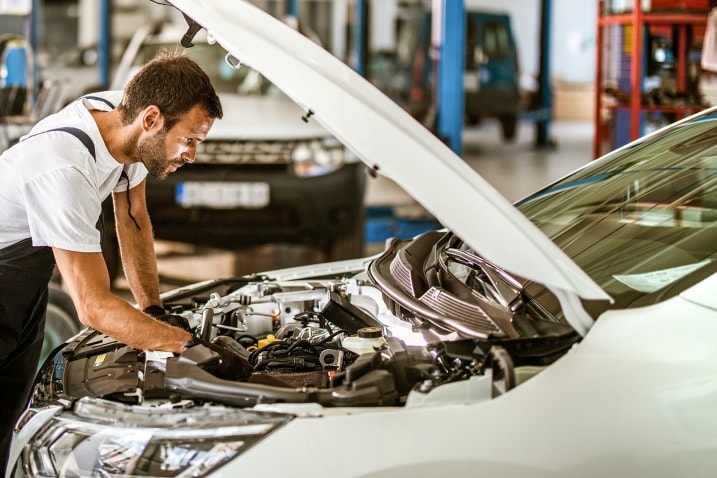All Categories
Featured
Table of Contents
- – 1. Schedule Normal Oil Changes.
- – 2. Display Tire Stress and Rotate Tires.
- – 3. Replace and inspect Wiper Blades.
- – 4. Examine Liquid Levels Frequently.
- – 5. Examination and Change Your Battery as Needed.
- – 6. Examine Brake Pads and Rotors.
- – 7. Change Air Filters Consistently.
- – 8. Watch on Lighting and Signals.
- – 9. Secure the Paint and Exterior.
- – 10. Stay with an Upkeep Schedule.
- – Conclusion.

Regular car upkeep is crucial for each chauffeur, making sure that your car runs efficiently, safely, and efficiently. By routinely examining your automobile's vital systems, you can prevent expensive repairs and prevent unforeseen failures. Below are some crucial cars and truck maintenance tips every driver need to recognize.
1. Schedule Normal Oil Changes.
One of the most important facets of vehicle maintenance is changing your oil routinely. The majority of automobiles need an oil adjustment every 5,000 to 7,500 miles, but you must check your proprietor's handbook for particular recommendations.2. Display Tire Stress and Rotate Tires.
Properly inflated tires add to much better fuel performance and handling. Reduced tire stress can bring about inadequate fuel economic situation, unequal tire wear, and also blowouts. Inspect your tire stress monthly utilizing a scale, and keep it at the degree recommended in your lorry's guidebook. In addition, turning your tires every 6,000 to 8,000 miles assists disperse wear uniformly, extending the life of your tires and boosting overall handling.3. Replace and inspect Wiper Blades.
Wiper blades are simple to ignore, yet they are important for safe driving in negative climate. Gradually, wipers come to be less efficient, triggering touches that reduce presence. Replace your wiper blades every 6 months or earlier if you discover they're no much longer removing your windshield correctly. Quality wipers make sure far better visibility, particularly during rain and snow.4. Examine Liquid Levels Frequently.
Your car uses a number of fluids to work efficiently, consisting of coolant, brake fluid, power steering fluid, and transmission liquid. Dirty or low fluids can cause problems like overheating, poor braking, and trouble steering. Inspect fluid degrees regularly, and consult your proprietor's handbook to understand when they ought to be changed or rounded off. Preserving proper liquid degrees is crucial for stopping malfunctions and extending your car's life-span.5. Examination and Change Your Battery as Needed.
The battery powers your auto's electrical parts and ensures reputable beginnings. Severe climate problems can reduce a battery's life expectancy, so it's vital to inspect it consistently, particularly if it's over 3 years old.6. Examine Brake Pads and Rotors.
If you listen to squealing, grinding, or notice a longer quiting range, it's time to have your brakes evaluated. Numerous motorists discover it useful to have brakes inspected during routine tire rotations or various other set up maintenance.7. Change Air Filters Consistently.
Air filters protect against dirt, particles, and other impurities from entering your engine and cabin. A blocked engine air filter can influence your auto's performance and gas economic situation, while a blocked cabin air filter reduces air top quality inside the automobile. Replace the engine air filter every 15,000 to 30,000 miles, and inspect your cabin filter at the very least yearly.8. Watch on Lighting and Signals.
Fronts lights, brake lights, and turn signals are vital for presence and interaction when driving. Consistently examine these lights to ensure they are working appropriately. Changing a bulb is usually fast and economical, however it's important to stay clear of driving with damaged or dark lights, which can jeopardize security and lead to tickets.9. Secure the Paint and Exterior.
Consistently cleaning and waxing your vehicle is greater than simply a cosmetic procedure; it protects the paint from dirt, salt, bird droppings, and UV rays. In time, these aspects can harm your auto's paint and result in corrosion. Waxing your cars and truck every couple of months provides a safety layer that helps preserve its look and worth.10. Stay with an Upkeep Schedule.
Your lorry's guidebook provides a maintenance routine tailored to your car's requirements. Following this schedule helps keep your automobile in peak condition and addresses prospective problems early. Routine exams, consisting of tune-ups and assessments by an expert, enable you to recognize and resolve small problems before they come to be major expenses.Conclusion.
Preserving your automobile doesn't have actually to be made complex or lengthy, however it's vital for maintaining it safe, reliable, and efficient. By following these ideas and staying proactive with your cars and truck's upkeep, you'll take pleasure in a smoother trip, fewer unanticipated concerns, and potentially higher resale value. Make normal maintenance a top priority, and you'll reap the benefits every time you struck the road.Table of Contents
- – 1. Schedule Normal Oil Changes.
- – 2. Display Tire Stress and Rotate Tires.
- – 3. Replace and inspect Wiper Blades.
- – 4. Examine Liquid Levels Frequently.
- – 5. Examination and Change Your Battery as Needed.
- – 6. Examine Brake Pads and Rotors.
- – 7. Change Air Filters Consistently.
- – 8. Watch on Lighting and Signals.
- – 9. Secure the Paint and Exterior.
- – 10. Stay with an Upkeep Schedule.
- – Conclusion.
Latest Posts
Discover Relaxation at the Claridge Indoor Swimming Pool
Published en
1 min read
Discover Relaxation at the Claridge Indoor Swimming Pool
Published en
1 min read
The Boogaloo Sports Bar & Grill at FunCity Resort Hotel: Where Enjoyable Meets Taste
Published en
2 min read
More
Latest Posts
Discover Relaxation at the Claridge Indoor Swimming Pool
Published Feb 12, 25
1 min read
Discover Relaxation at the Claridge Indoor Swimming Pool
Published Feb 09, 25
1 min read
The Boogaloo Sports Bar & Grill at FunCity Resort Hotel: Where Enjoyable Meets Taste
Published Jan 30, 25
2 min read